Sorted by date Results 1 - 25 of 32
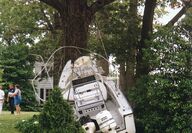
They reveal how the pandemic affected boating in ways just beginning to be understood. The U.S. Coast Guard recently released the 2020 Recreational Boating Statistics, and reports of accidents, fatalities and injuries were significantly up over the prior year. While still under review, the Coast Guard believes that the primary driving factor for the significant increase in deaths was the significant increase in boating activity. The nonprofit BoatUS Foundation for Boating Safety and Clean Water... Full story
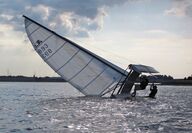
All vessels except sailboards and certain racing shells or rowing sculls must have at least one wearable Type I, II, III or V life jacket (PFD) that is U.S. Coast Guard (USCG) approved and of the proper size for each person on board. Life jackets must be readily accessible, in good and serviceable condition, and sized for the intended wearer. In addition to the above requirements, vessels 16 feet in length or longer, except a canoe or kayak, must have one Type IV USCG approved throwable... Full story

National Boating Safety Survey shapes local, national safety policy. An all-encompassing report on recreational boating activity in the U.S. is giving the U.S. Coast Guard, policymakers and the boating community the ability to shape smart boating safety policy into the future. Issued last week by the Coast Guard, The National Recreational Boating Safety Survey (NRBSS) looks at boating participation demographics, trends, boat use, at-risk boating populations, boating safety and more. The survey d... Full story
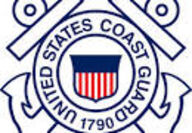
Does your Towing Safety Management System know? Recently, an investigation of a towing vessel marine casualty (loss of propulsion) revealed several gaps in the implementation of the vessel’s Towing Safety Management System (TSMS). The identified TSMS gaps were: 1) causal to the incident, and 2) a direct result of a poor TSMS-to-TSMS transition during the chartering of the vessel. Background: The ownership and operational management of ships is notoriously difficult to clearly understand. The c... Full story

In February 2019, a deep draft vessel on an international voyage bound for the Port of New York and New Jersey reported that they were experiencing a significant cyber incident impacting their shipboard network. An interagency team of cyber experts, led by the Coast Guard, responded and conducted an analysis of the vessel’s network and essential control systems. The team concluded that although the malware significantly degraded the functionality of the onboard computer system, essential vessel... Full story

Boatyards, marinas and clubs are waking up after a long winter's nap, and boaters have begun preparing their vessels for the season. While the boat needs to be looked at and readied for a summer of fun, so does your safety. The BoatUS Foundation for Boating Safety and Clean Water says that doing these four free or low-cost things now will help ensure a summer of safe boating. 1. Get a free Vessel Safety Check: Where else can you ask a professional to go over your boat to ensure it's safe and... Full story

Purpose. The U.S. Coast Guard issues Findings of Concern (FoC) to disseminate information related to unsafe conditions that investigators identified as causal factors in a casualty and could contribute to future incidents. FoCs are intended to educate the public, state, or local agencies about the conditions discovered so they may address the findings with an appropriate voluntary action or so they can highlight existing applicable company policies or state/local regulations within their areas... Full story

United States Coast Guard Headquarters Inspections and Compliance Directorate, Washington, DC May 16, 2017 - Safety Advisory 01-17 The U.S. Coast Guard's National Vessel Documentation Center (NVDC), located in Falling Waters, West Virginia, is the only entity authorized to issue Certificates of Documentation (CODs), Form CG-1270, valid for a period of one year from date of issuance. This document is required for vessels engaged in Commercial trade and is optional for vessels five net tons and... Full story
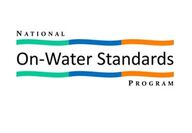
The U.S. Coast Guard's National On-Water Standards (NOWS) Program grant management team and the American Boat & Yacht Council (ABYC) are pleased to announce the release of a new comprehensive "How-to..." guide for designing On-Water instruction using the American National Standard (ANS) for On-Water recreational powerboat operation. The Power Standard Technical Support Document (Power TSD) was developed to assist education providers, course developers and instructors in designing and... Full story

January 3, 2017 - Safety Alert 1-17 Recently, while a bulk carrier was at anchor off the coast of Texas, a crewmember that could not swim was put over the rail in a Bosun's Chair to paint the vessel's mid-ship draft marks and load lines. Unfortunately, when his shipmates on deck commenced to haul him up, the Bosun's Chair line parted and he fell into the water. He survived the fall and attempted to swim towards a life ring that had been thrown to him, but he ultimately submerged and was lost.... Full story

Kannad Marine has issued a recall of all SAFELINK EPIRBs due to a possible defect that could result in the beacon not operating in emergency situations. If you own or use a SAFELINK EPIRB automatic or manual model as identified in the attached SAFELINK Recall Safety Notice you should NOT use it as a primary Search and Rescue beacon onboard your vessel. Kannad recommends that all owners of SAFELINK EPIRBs register their ownership, location and contact details via the dedicated website: http://www... Full story

Over the course of the past weeks, the Coast Guard has responded to multiple cases along the Gulf of Mexico where people in distress were not wearing lifejackets. Life Jackets should be used with any activity on the water, whether it's done with a paddle, motor or a sail. Using a properly fitted life jacket increases survivability in an accident, which gives rescuers more time to locate a victim. Accidents can result in a number of injuries that prevent a person in the water from swimming.... Full story

The U.S. Coast Guard’s National On-Water Standards (NOWS) grant management team and American Boat and Yacht Council (ABYC) is pleased to announce the approval and publication EDU-1 On-Water Power Standard which is the first of three proposed skills-based American National Standards (ANS) for On-Water instruction in recreational boating safety. The Standard gained formal approval on Nov. 12. Course designers using the EDU-1 On-Water Power Standard and NASBLA’s standard ANSI/NASBLA 103-2016: Basic... Full story

This safety alert reminds recreational boaters and commercial vessel operators to use caution when operating their vessels near areas where dredging operations may be taking place. There have been too many instances where outboard motor propelled vessels have allided with a dredge pipe causing the motor to recoil into the boat and strike the occupants or eject them from the vessel. Operators should always be on the lookout for floating debris and unmarked hazards and operate at a speed that allo... Full story

This safety alert updates Safety Alert 2-15, dated March 3, 2015, by adding two additional recommendations highlighted in red. The Coast Guard has confirmed several reports it has received stating that main engines may not attain the expected speed when using ultra low sulfur fuel oil. As such, the Coast Guard has revised its list of recommendations to vessel owners and operators about the importance of establishing effective fuel oil changeover procedures to comply with MARPOL Annex VI... Full story
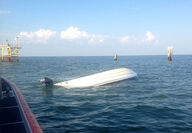
The Coast Guard rescued two people recently after their boat reportedly capsized from a ship's wave north of the Texas City dike near the Houston Ship Channel. A Good Samaritan called Sector Houston-Galveston watchstanders at 5:08 .m., on VHF-FM channel 16, to report the two people and their capsized boat in need of assistance. Watchstanders launched Station Galveston's response boat crew who recovered them in good health at 5:31 p.m. and transported them to Siever's Cove. "We'd like to... Full story

The U.S. Coast Guard is concerned about the sale and availability of unapproved recreational and commercial vessel navigation lights. Purchasers of such lighting should be aware replacement lighting may be improper for its application due to the failure by manufacturers to meet technical certification requirements. Furthermore, technical advances in marine lighting, such as the use of Light Emitting Diodes (LEDs), rope lighting, underwater lighting, and other various types of decorative lighting... Full story

Owners and operators of vessels employing large laundry operations and extra-large-capacity drying machines are warned of the potential fire hazards this equipment poses. They are also encouraged to be aware of and familiar with the equipment and all associated safety systems and to ensure these systems are properly maintained and operational. Recently a small fire developed in a dryer onboard a cruise ship. The fire was quickly extinguished by the vessel's crew and caused no significant... Full story

The maritime industry and specifically waterfront facilities can present some unusual hazards to those who perform the wide array and variety of work associated with the business of shipping. To illustrate that point, a pick-up truck was recently dragged into the harbor by a mooring line that was being hauled in by a ship's mooring winch. The shore-side line handler that was using the truck to assist with the evolution narrowly escaped injury and possible death by quickly jumping out of the truc... Full story

This bulletin provides an update on aspects of the Coast Guard's Ballast Water Management (BWM) program. It includes guidance to comply with Title 33, Code of Federal Regulations (CFR) Part 151, Subparts C and D. It also announces a change to the terms of extended compliance dates the Coast Guard will issue to vessels. Drydocking Dates The "original compliance date" for a vessel is determined by the Implementation Schedule in either Table 151.1512(b) for Subpart C or 151.2035(b) for Subpart D.... Full story
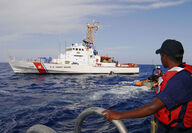
Today we pay tribute to your past. I am even more excited about your future. As your service Secretary, I have had the first-hand privilege to support and witness the recapitalization of the Coast Guard's fleet of vessels. I have experienced the excitement of stepping on board a shining new National Security Cutter. I receive daily reports of the good work the Coast Guard performs in law enforcement, maritime security and national security. Most important, we should all be impressed by the... Full story

For recreational boaters, the waterway signposts known as aids to navigation are critical for a safe journey. But, what if an aid to navigation (ATON) such as a floating buoy marking the edge a deep-water channel could only be seen on an electronic screen and not by the naked eye? Will recreational boaters benefit from these new “eATONs”? That’s the question the US Coast Guard wants to find out with a 25-question online survey at www.surveymonkey.com/s/21stCenturyWaterways. A full look at the i... Full story

Last summer, there were two incidents where aircraft towing banners (banner tows) collided with parasail rigs aloft that were being towed by small passenger vessels. Fortunately, there were no passenger injuries, only property damage, but these incidents could have resulted in serious injury or a fatality. This MSIB outlines the applicable regulations and provides guidance to promote safety of parasailing while operating with passengers aloft in the vicinity of banner tow or other aircraft... Full story

This safety alert serves to remind vessel operators and company technical managers of the importance of proper ship's anchor use, stowage, and maintenance. Anchor windlass brakes, riding pawls, and devil's claws must be used as designed and periodically maintained to ensure effectiveness and safety. It's critical that proper supervision and inspection be conducted during and after anchoring, retrieving and storage evolutions, and maintenance activities. When installing a replacement anchor, it... Full story

This Safety Alert is being issued due to recent safety concerns discovered on vessels with fixed CO2 fire fighting systems. It is critical that operators of vessels with fixed CO2 systems are familiar with the operation of the systems; conduct periodic inspections of the systems for readiness, and know the signs for detecting when a discharge has occurred. It is recommended that the appropriate crew members receive training on CO2 system operation and its basic components. Recently, during the... Full story